- Home
- Robin Cook
Charlatans Page 17
Charlatans Read online
Page 17
“I don’t know whether it was clever or stupid,” Dr. Hernandez remarked. “I’ll have to think about it more.” With that said, he left the amphitheater.
Taking a deep breath, Noah turned to see if he could catch Ava’s eye. As upset as he felt at the concurrent surgery surfacing, at least he thought she’d be pleased that he had managed to avoid the whole anesthesia choice issue and any blame that could be directed toward her. But she was already on the stairs, heading away from him, on her way to the main exit on the upper level. It was at that moment that Noah saw Dr. Mason climbing down into the pit. For a brief second Noah considered bolting out the exit that Dr. Hernandez had used. But it was too late. Dr. Mason would have caught him one way or the other, so he stayed where he was.
With a kind of rolling gait because of his girth, Mason bore down on Noah. His heavy face was set in his typical scowl. “You are your own worst enemy, Dr. Rothauser,” Mason snapped when he came up to Noah, crowding him and forcing Noah to take a step back. “I warned you not to skew the facts, which you most certainly did. You didn’t even mention that Anesthesia gave the wrong fucking anesthesia, a key point in the whole case. Who the hell are you protecting and why?”
“I’m not protecting anyone,” Noah said, knowing he was lying. “Least of all the patient, despite his popularity. He was the one mostly responsible for what happened, and I made that very clear. I also talked about the Admitting people and their role. Those are the two parties that you brought up to me when we spoke.”
Dr. Mason cocked his head to the side, looking at Noah askance and twisting his face into a wry smile. “You’re a goddamn liar. When we talked about this we were standing right here in this pit and then in my clinic office. I said specifically that Anesthesia screwed up plain and simple on both occasions. That’s what I said. Then I added something about the patient and Admitting, but it was Anesthesia’s fault, stupid, and this death should have been an anesthesia death, not a surgical one!”
“I did the best I could,” Noah said. He didn’t know what else to say. He had the sense that if he apologized, it wouldn’t help and would maybe even make things worse.
“Bullshit,” Dr. Mason snapped back. “Worst of all, you let the discussion disintegrate into the concurrent-surgery issue, something I specifically warned you not to do. If this thing blows up again around here, I’m going to hold you responsible, and you are out of here. You understand what I’m saying?”
“I think so,” Noah croaked.
“You know what really irks me about you is that you are one of those holier-than-thou, prissy snobs who thinks he is better than everybody else, like Meg Green, for instance, one of the best goddamned residents we had around here. You got her busted because she was taking Oxycontin for her shoulder.”
“She was abusing it,” Noah said.
“So you said,” Dr. Mason said, lowering his voice. “You are on thin ice, my friend. Just keep that in mind.”
13
WEDNESDAY, JULY 12, 2:10 P.M.
After using a disposable nail cleaner and tossing it into the toe-operated waste can, Noah began to scrub his hands for his final scheduled case of the day. He was with his assistant at the scrub sink between operating rooms 18 and 20 with a hood and surgical mask in place. He had been in 18 since coming up to the OR after the M&M Conference and had been busy and efficient. Already he’d completed a colectomy, or the excision of a portion of the large intestine, a removal of a benign but sizable liver tumor, and a hemorrhoidectomy. The first two patients were doing well and back in their respective rooms. The only one who wasn’t was the last case. He was still in the PACU, or post-anesthesia care unit, but he had been cleared to leave and was only waiting for a bed to become available on the general surgical floor. The next and final case on Noah’s schedule was a breast biopsy with a possible full mastectomy, depending on the results of the biopsy.
As the day had progressed, he’d felt better. Noah loved being in the operating room. With his natural technical ability and confidence, it was in the OR that he felt the most at home. It was his sanctuary where everyday concerns faded. Although the interaction with Dr. Mason after the M&M had been unnerving, it could have been worse. His warning was contingent on the concurrent-surgery issue blowing up again, but the chances of that happening, in Noah’s estimation, were close to nil. As Dr. Hernandez had mentioned in his short speech that morning, the matter had been fully vetted by the BMH hierarchy, the Massachusetts Board of Medicine, and even national surgical organizations, despite a number of patient advocate people being emotionally against it. What was clear to Noah was that the sticking point in his relationship with Mason was Meg Green’s departure and Noah’s role in that regrettable episode.
“I enjoyed the M&M Conference this morning,” Mark Donaldson said, interrupting Noah’s thoughts. Mark had been tapped to help Noah for the upcoming case. On the previous three cases that day, Noah had been assisted by one of the new first-year residents, but since she was scheduled for clinic starting at 3:00 P.M., Noah had called on Mark to come up and relieve her.
Over the previous week and a half, Noah had made it a point to assign the new residents to assist him in surgery so that he could evaluate their skills. So far he’d been exposed to a third of the group and was pleased with their performance. There was no doubt in his mind that they were a solid, talented bunch, which boded well for Noah’s tenure as the super chief. Often it was the new crop of residents who gave the super chief the most headaches as they adjusted or didn’t adjust to the demands of the program.
“I appreciate you telling me you enjoyed the conference,” Noah said, continuing his scrub. It was the fourth time he had done it that day, but he remained compulsive about following protocol, just as he did with everything else in medicine. But with hand washing he was particularly careful. The specter of postoperative infections was Noah’s biggest worry. He did everything possible to avoid them.
In between his surgeries, Noah had kept an eye out for Ava, surreptitiously, so as not to call attention. He certainly wasn’t about to ask anyone about her whereabouts. When he didn’t happen to run into her, he checked the scheduling monitor. When he didn’t see her name, he checked out the Anesthesia schedule. It was there that he learned why she wasn’t on the surgical monitor. It was her turn to supervise anesthesia residents and nurse anesthetists in rooms 6, 8, and 10. This kind of supervisory role was done on a rotating basis among all the staff anesthesiologists except the chief, Dr. Kumar.
Noah had no intention of talking with Ava even if he ran into her, for fear of starting rumors. Janet Spaulding, the OR supervisor, had an uncanny ability to be aware of everything that was going on in the department, professionally and otherwise. It hadn’t been a coincidence that she had come over to chat when she had noticed Ava and Noah sitting together in the surgical lounge the previous Friday.
Just before Noah had started scrubbing for this final case, he managed to catch a glimpse of Ava by glancing into OR 10 as he passed by. Although it had been a fleeting glimpse, he was certain it was she, standing behind a nurse anesthetist who was busy intubating a patient. Noah doubted that she had seen him. For a host of reasons he was eager to see her that night, especially to get her take on the M&M. He was certain she had to be pleased.
Holding his hands up, Noah began scrubbing his forearms as the final part of the process. He was close to finishing when the intercom system suddenly came to life. A disembodied but urgent voice called out: “Code blue in OR number eight!”
Nearing the end of the scrub process but continuing to keep his hands aloft to avoid any potentially contaminated water from running down onto them, Noah took a step back from the sink so he could look in the direction of OR 8. Almost immediately, a couple of anesthesia residents appeared, running toward the room in question. One was Dr. Brianna Wilson, pushing the cardiac crash cart with a defibrillator as well as a collection of medications and other equipment. The other resi
dent was Dr. Peter Wong, who pushed a second cart that Noah was later to learn was specifically for difficult airway-management situations.
By reflex born of a willingness to help in any emergency, Noah tossed his scrub brush into the sink and took off toward OR 8, realizing that it was one of the rooms in which Ava was supervising either a resident or nurse anesthetist. He hoped that she wasn’t involved directly in another major complication, knowing just how emotionally traumatic the Bruce Vincent case had been for her.
Using his shoulder to push through the OR door, Noah kept his scrubbed hands raised just in case he was called on to jump into the operation. Just inside the door, he paused to assess the situation. The ECG alarm was going off and the monitor showed ventricular fibrillation. The pulse-oximeter alarm was also going off, adding to the cacophony in the room and urgently announcing the blood oxygen was low.
The patient was a significantly obese Caucasian woman who Noah would later learn was a thirty-two-year-old mother of four named Helen Gibson. Instantly, he could tell it was an emergency trauma case. There was a compound fracture of her right lower leg, suggesting an auto accident of some kind. A bit of bone protruded through the skin.
Ava stood at the head of the table. She was struggling with an advanced video laryngoscope, trying to intubate the patient, who Noah could tell was not breathing. To Ava’s right was a first-year anesthesia resident named Dr. Carla Violeta, who attempted to aid Ava by pushing down on the patient’s neck at the point of the cricothyroid cartilage. Normally a bit of pressure at that location would make the entrance to the trachea easier to see. The problem was that a second anesthesia resident was giving external cardiac massage by forcibly and rapidly compressing the woman’s sternum, causing the entire body, including the head, to bounce around. Getting an endotracheal tube into a difficult-to-intubate patient under such conditions was almost impossible. Noah could tell the patient fit the difficult category by her head being tilted forward rather than back, suggesting a cervical neck problem.
The anesthesia residents who’d rushed in with the two carts were busy getting the defibrillator prepared. Standing to the side all gowned and gloved and ready to operate was Dr. Warren Jackson. Noah knew him all too well. He wasn’t quite as bad as Dr. Mason, but he was no polished gentleman, either. He, too, was an old-school, demanding, and temperamental surgeon who had trained back in the good old days when he apparently had been abused and now felt it was his duty to abuse. Noah could sense the man was irritated, as usual.
By some coincidence, the circulating nurse was Dawn Williams, who’d been in OR 8 on the Vincent case. Seeing Noah burst in, she immediately rushed over. “We got another doozie of a problem,” she said. “The first-year resident went ahead and tried to intubate the patient before Dr. London got in here. Dr. London was supervising another intubation in the next room.”
“Let me guess,” Noah said. “Dr. Jackson pressured her.”
“You got it,” Dawn said. “He was really on her case something awful.”
“Okay, clear,” Dr. Wilson called out. She was holding the paddles of the fully charged defibrillator and moved to the side of the patient. The resident giving the cardiac massage lifted his hands in the air. Ava stepped back from the head of the table, and Carla stopped pushing on the woman’s neck.
There was a distinctive thud as the defibrillator discharged. Simultaneously, Helen’s body lurched on the operating table as the electric charge spread through her and caused widespread muscular contractions. All eyes were glued to the ECG monitor except for Ava’s. She immediately reinserted the tip of the video laryngoscope and went back to trying to get an endotracheal tube placed.
Noah hurried over to Ava’s side while a subdued cheer arose from the residents who’d brought the crash cart. The fibrillation had stopped. The patient’s heart was now beating with a normal rhythm.
“What’s the problem?” Noah quickly asked Ava.
“We can’t respire this patient,” Ava shouted. “She’s paralyzed and can’t be bagged for some reason. And I can’t get an airway because I can’t see what the hell I’m doing.”
“It looks like her neck is flexed,” Noah said.
“It is, and it’s fixated. In terms of visibility of the trachea, it’s the worst I’ve ever seen: Mallampati Class Four Grade Four.”
“What the hell is Mallampati?” Noah said. He’d never heard the term.
“It’s a grading system for visualization of the trachea,” Ava snapped. Then to Carla she said: “Try pushing on the neck again. I almost had it a moment ago, before the shock.”
Feeling a rising panic, Noah glanced at the ECG monitor. He didn’t like the looks of it, fearing the heart was about to fibrillate again. He looked at the pulse-oximeter readout, whose alarm was still sounding. The oxygen level in the patient’s blood had barely changed. In fact, the patient’s color, which had been a slight shade of blue when he’d arrived, was getting worse. There was no doubt in Noah’s mind that the situation was rapidly deteriorating. To his right was the second cart, with various laryngoscopes, tracheal tubes, and other intubating equipment, plus an emergency cricothyrotomy kit that contained the paraphernalia needed to create a new opening into the lungs through the neck, bypassing the nose and the mouth.
With the same resolve that Noah had demonstrated when he’d stormed in on the Bruce Vincent case, he suddenly knew what he had to do. He snapped up the cricothyrotomy kit and tore it open. Without taking the time to put on sterile gloves, he grabbed a syringe outfitted with a catheter from the kit’s contents, pushing around to the patient’s right side, crowding Ava and Carla out of the way. Angling the tip of the catheter toward the patient’s feet, he placed its needle end into the depression below the patient’s Adam’s apple and decisively pushed it directly into the patient’s neck. There was a popping sound. When Noah pulled back on the syringe’s plunger and the syringe filled with air, he knew he was in the right place. Quickly he passed a guide wire through the catheter, then a dilator to enlarge the opening, and a moment later a breathing tube.
“Okay, good,” Ava said. She connected the newly created breathing tube to the anesthesia machine and began respiring the patient with 100 percent oxygen.
Just as the entire team was beginning to feel upbeat, disaster struck. Without warning, the patient’s heart reverted back to fibrillating, causing the cardiac alarm to resound. The oxygen level in the blood that had been rising now reversed course, necessitating a flurry of activity. After a short period of external massage that required one of the residents to climb up and kneel on the operating table, Helen received another shock from the defibrillator.
Once again there were some restrained cheers while everyone watched the cardiac monitor. The fibrillation stopped. But any sense of celebration quickly evaporated when the heart’s normal rhythm didn’t reinstate. Instead, the heart was stubbornly electrically silent, and the cardiac monitor traced a flat, unchanging straight line. Now there was no heartbeat, a situation known as asystole, which was disturbingly reminiscent of Bruce Vincent. Quickly the resident climbed back up onto the OR table to recommence closed-chest massage. At the same time the anesthesia team started various medications in hopes of restoring a heartbeat.
A few moments later, cardiologist Dr. Gerhard Spallek entered the OR, struggling to secure his surgical mask. After hearing the details, he said: “My guess is that we have had what amounts to a major heart attack secondary to the low oxygen levels. It doesn’t bode well, but here’s what we can try.”
Under his direction a few more drugs were used in an attempt to stimulate the heart. Meanwhile, the external cardiac massage was continued, as was the 100 percent oxygen, keeping the blood oxygen levels reasonable. When the additional medication wasn’t successful, Gerhard proceeded to thread an internal pacemaker wire in through the patient’s right internal jugular vein. Even that wasn’t successful to initiate a heartbeat.
&n
bsp; “That’s it,” Gerhard declared. “The heart is not responding in the slightest. There’s no doubt it was severely damaged. I’m afraid the patient is gone. I’m sorry I could not be of more help. Thank you for allowing me to participate.” With a respectful half bow, he pulled open the door and left the room.
The resident who had been giving the external cardiac massage climbed down from the operating table.
“This is an outrage,” Dr. Jackson said the moment the door closed behind the cardiologist. Throughout the ordeal he’d been totally silent, standing off to the side with his hands clasped across his chest, watching with growing concern but apparently keeping hope alive that he would be repairing the patient’s damaged leg. “Just so everyone knows, I am going to be talking with Dr. Kumar about this”—he struggled for words—“this disaster. This patient is a thirty-two-year-old healthy mother of four. I’m appalled this could happen here at the BMH. We’re not out in the boonies someplace.”
Noah was sorely tempted to bring up the issue of his inappropriately pressuring the first-year anesthesia resident to begin the case before Ava as the supervisor was in the room, but he held his tongue. He felt it wasn’t the time or place, as the man was already irate and it would serve no purpose other than to inflame the situation.
“In all my experience I have never seen a more difficult patient to intubate,” Ava said with a voice that seriously quavered. Noah understood immediately that she was making an attempt to support Carla, which impressed him because he could tell from getting to know her that she was devastated by the episode herself. Up until the Vincent case she’d never had an operative death. Now she had been involved in two.
“What made it so goddamn hard?” Dr. Jackson spat. “You’re supposed to be professionals at putting in endotracheal tubes.”
“It was a combination,” Ava managed. Her voice broke with emotion, almost anger. She took a deep breath to calm herself.

 Shock
Shock Mutation
Mutation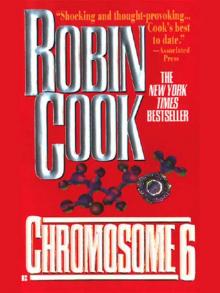 Chromosome 6
Chromosome 6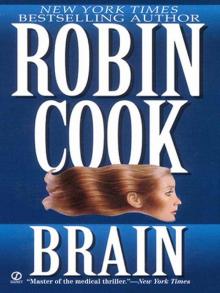 Brain
Brain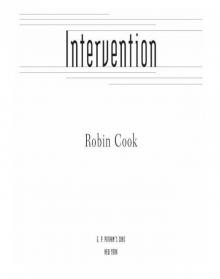 Intervention
Intervention Invasion
Invasion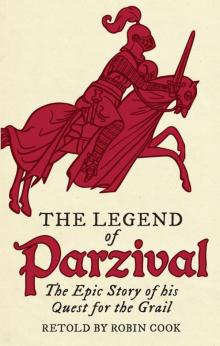 The Legend of Parzival: The Epic Story of His Quest for the Grail
The Legend of Parzival: The Epic Story of His Quest for the Grail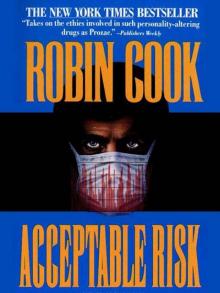 Acceptable Risk
Acceptable Risk Cell
Cell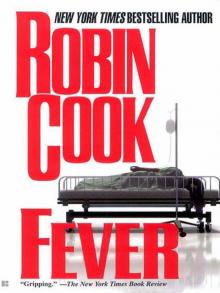 Fever
Fever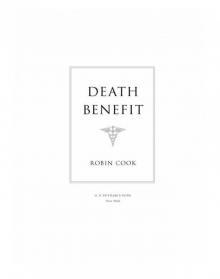 Death Benefit
Death Benefit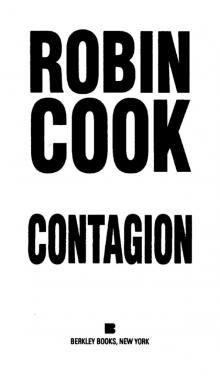 Contagion
Contagion Mindbend
Mindbend Coma
Coma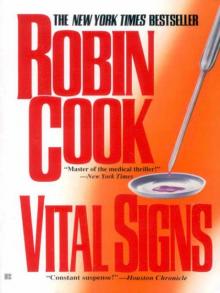 Vital Signs
Vital Signs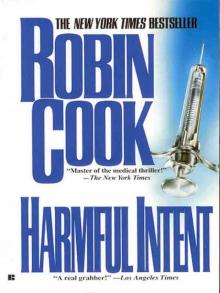 Harmful Intent
Harmful Intent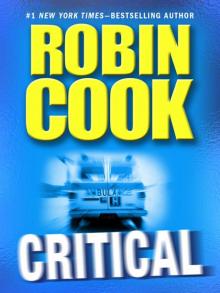 Critical
Critical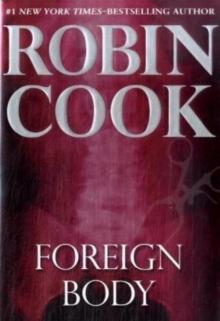 Foreign Body
Foreign Body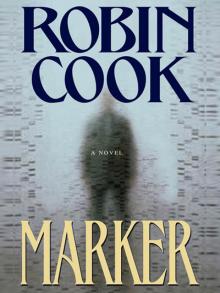 Marker
Marker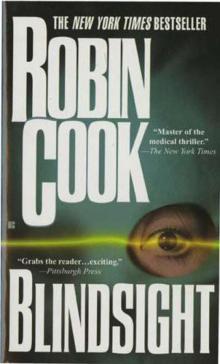 Blindsight
Blindsight Terminal
Terminal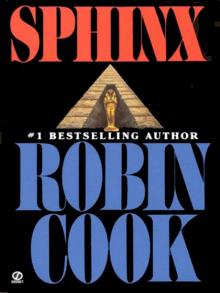 Sphinx
Sphinx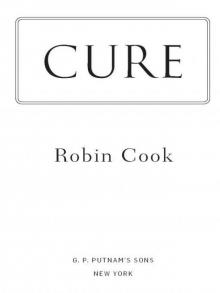 Fatal Cure
Fatal Cure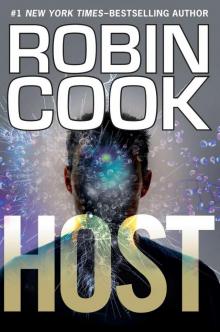 Host
Host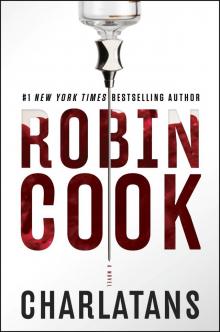 Charlatans
Charlatans Crisis
Crisis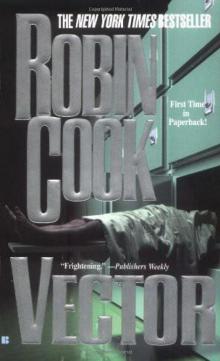 Vector
Vector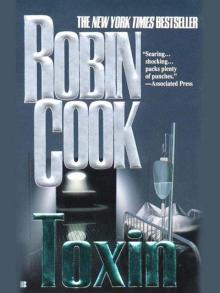 Toxin
Toxin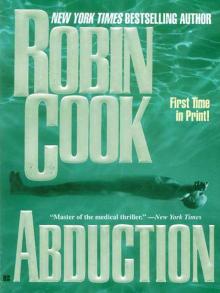 Abduction
Abduction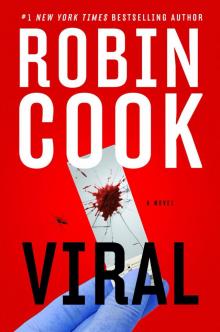 Viral
Viral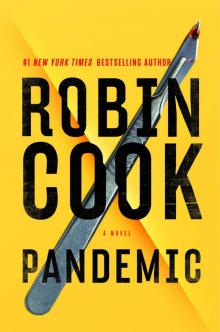 Pandemic
Pandemic Outbreak
Outbreak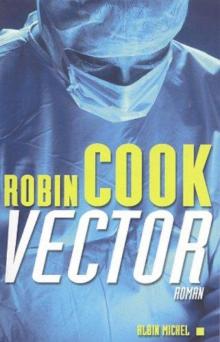 Vector js&lm-4
Vector js&lm-4 Godplayer
Godplayer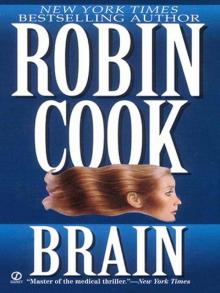 A Brain
A Brain Year of the Intern
Year of the Intern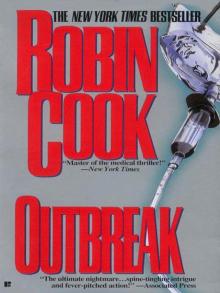 Outbreak dmb-1
Outbreak dmb-1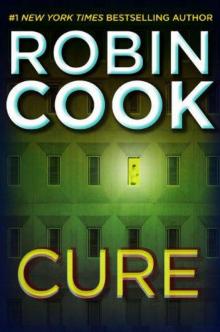 Cure
Cure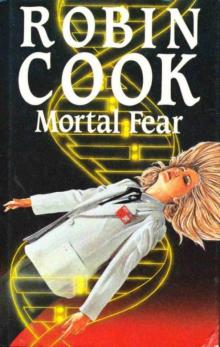 Mortal Fear
Mortal Fear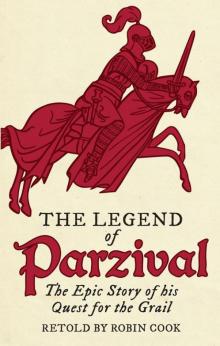 The Legend of Parzival
The Legend of Parzival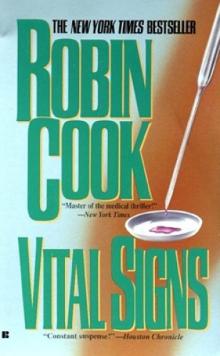 Vital Signs dmb-2
Vital Signs dmb-2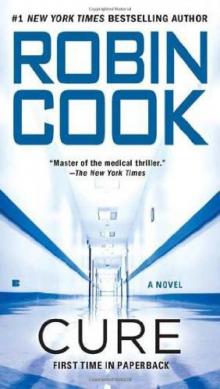 Cure (2010) sam-10
Cure (2010) sam-10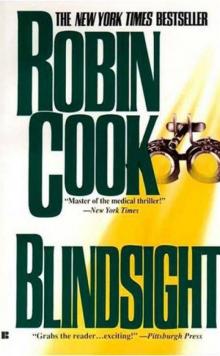 Blindsight sam-1
Blindsight sam-1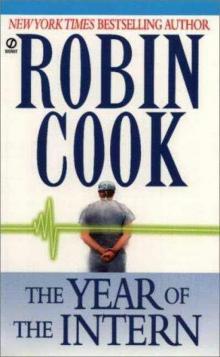 The Year of the Intern
The Year of the Intern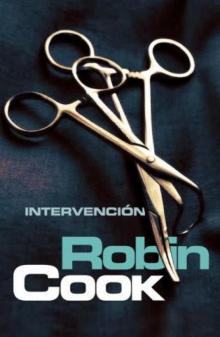 Intervention sam-9
Intervention sam-9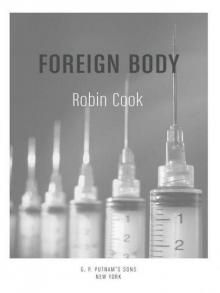 Foreign Body sam-8
Foreign Body sam-8